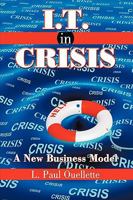Beginning: X x, Y y
Select Format
Select Condition 
Book Overview
No Synopsis Available.
Format:Paperback
Language:English
ISBN:0262692821
ISBN13:9780262692823
Release Date:January 2003
Publisher:MIT Press (MA)
Length:319 Pages
Weight:0.85 lbs.
Dimensions:0.7" x 5.0" x 7.8"
Age Range:18 years and up
Grade Range:Postsecondary and higher
More by L. Paul Ouellette
Customer Reviews
5 customer ratings | 5 reviews
There are currently no reviews. Be the first to review this work.


























